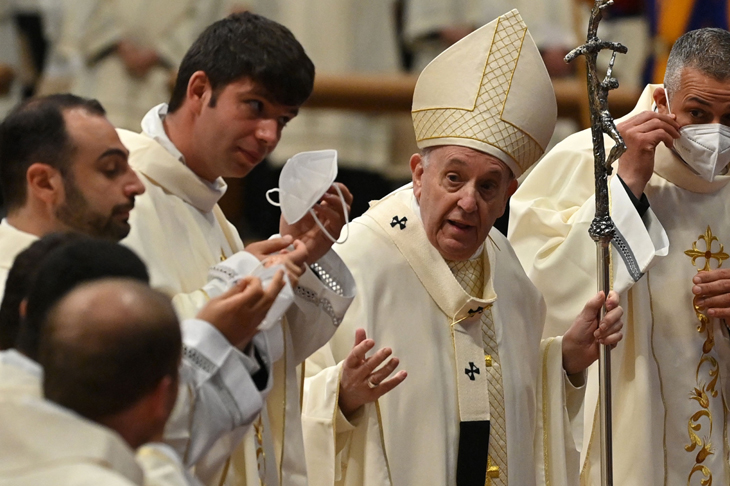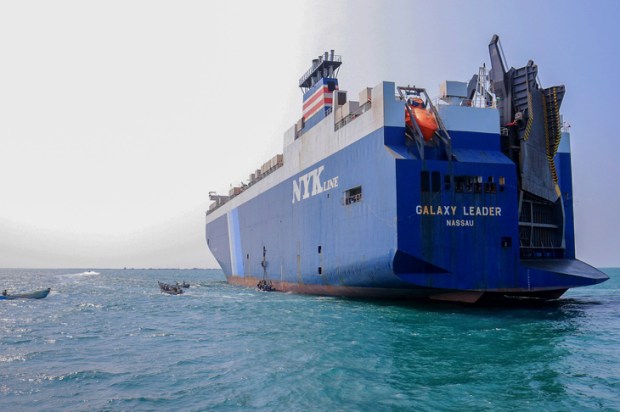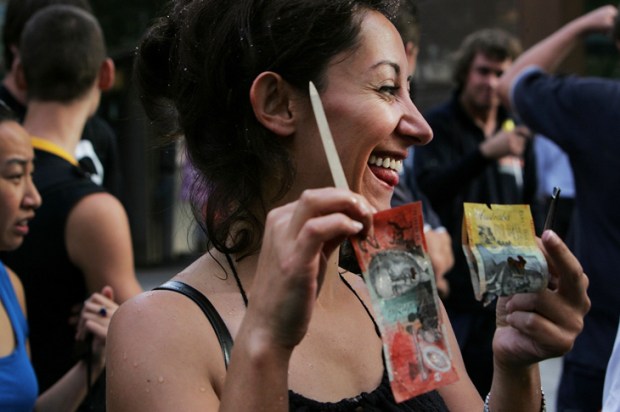Here’s a thought for anyone pondering Australia’s status on the world stage. This country has no cardinal. At least one with a vote when the time comes for the college of cardinals in Rome to meet in conclave and elect a successor to Pope Francis as head of the Roman Catholic Church. There’s Cardinal Pell of course, but having turned 80 he is no longer eligible to vote in a papal election.
New Zealand has a cardinal. So does Samoa, with 24,754 Catholics at the last census, and Tonga, with only 15,441. But Australia, with a Catholic population of 5,291,839, does not so Australians will have no say in the next papal election.
Most of the Sydney archbishops who preceded Pell were cardinals but that tradition, so far, has lapsed. Why?
The answer might be found in the character and priorities of Pope Francis, who nominates cardinals. This querulous old man has shown himself to be highly political in a leftist way. His modus operandi was learnt from the Peronism in his native Argentina, the essence of which is to keep people guessing about your next move, with temporary and shifting alliances, as an erstwhile papal favourite, Cardinal Becciu, now on trial for financial misdemeanours, could attest. The only constants are that Francis intensely dislikes conservatives and is himself dictatorial in personality.
A chief preoccupation of dictators is the perpetuation of their rule. Pope Francis wants the next Pope to be a continuation of himself and so carry on ‘the spirit’ of the Second Vatican Council, to which he remains as obsessively attached as a gramophone needle stuck in a groove. He sees it, half a century later, as the blueprint for a progressive, modernised Roman Catholic Church. It’s hard to think of the 1960s as modern, but time moves slowly in the Vatican and perhaps he thinks flared trousers are modern too. That this ‘new Pentecost’, as it was touted at the time, preceded a massive collapse in Catholic practice seems not to worry him.
It should. In Australia that figure of 5,291,839 Catholics means nominal Catholics, not churchgoing ones; only 623,400, or 11.8 per cent of Australian Catholics attend Sunday Mass; before Vatican II it was 65 per cent. The pattern is identical throughout the Western world.
The Second Vatican Council can now be seen as part of the revolutionary movement that engulfed the Western world in the 1960s and 1970s, a time of gratuitous and destructive change. Revolutionaries always think they know what is best for everyone else. Francis obviously shares this conviction, so that in the face of decline he continues to push his dated beliefs in a ‘new’ Church and views upholders of ‘traditional’ Catholicism as reactionary malcontents. He has attacked them where he knew it would hurt most by further restricting the availability of the Latin or Tridentine Mass, already curtailed in July, to which a growing number of young and orthodox Catholics are attached.
In doing so he has begun an internecine war in the Catholic Church, which will prove a disastrous distraction from the Church’s mission. Europe and much of the West are sliding into paganism and the Pope is suppressing one of the few areas where Catholicism is growing. It’s as if the captain of the Titanic decided to throw his ablest crew overboard as the iceberg loomed.
Pope Francis is not only short-tempered but obstinate. He is determined that even though at 85 time is not on his side, he will win this war – or rather the spirit of Vatican II will. The next Pope will not, if Francis can help it, take a different line. The easiest means of ensuring this is by stacking the college of cardinals who will elect his successor.
Is this why Australia has no cardinal? Is it that none of the prelates in this country who would normally be considered a candidate is sufficiently on Francis’s wavelength to be trusted to vote the way Francis wants when a new Pope must be elected?
The Archbishop of Sydney, Anthony Fisher, a Dominican friar and ethicist, is seen as not liberal enough. Archbishop Mark Coleridge in Brisbane is probably closer to Francis’s idea of what a cardinal should be than the five other Australian archbishops, and may even be eligible to be made one as a reward for setting up the ongoing Catholic national plenary council. That this has turned out to be a foretaste of heaven for progressive lovers of their own voices, with much blather about the need for more ‘renewal’, more ‘listening’ and every other liberal cliché (plus another instalment of grovelling over child sexual abuse) will have done Coleridge no harm since it’s all part of the ‘synodality’ Francis professes to love (though he doesn’t really, that’s just the PR. What he loves is not synods having the authority to make decisions but what the poet Thomas Gray might have called ‘the applause of listening synods to command’).
Still, you don’t have to be an archbishop to be made a cardinal. And if Pope Francis were interested in appointing cardinals who rather than following his ideological line are distinguished for commitment to their flock there is a prize candidate in the backblocks of New South Wales. Bishop Columba Macbeth-Green was, at 44, Australia’s youngest bishop when appointed to the diocese of Wilcannia-Forbes in 2014. This diocese, reminiscent in its remoter parts of ‘the outer Barcoo, where the churches are few’ of A. B. Paterson’s A Bush Christening, had been without a bishop for five years because no one could be found to take it on. Bishop Macbeth-Green spends most of his time on the road and has become a trusted pastor to people whose life is tough and down-to-earth.
Among his episcopal accoutrements is a set of bagpipes. He is a serious player and has competed in pipe band championships in Scotland. ‘You love them or you hate them,’ he told an ABC interviewer, ‘but you can’t ignore them.’ That gives them a pastoral purpose. ‘People who may not talk to a priest,’ he observes, ‘or certainly not talk to a bishop, if he’s out there playing the bagpipes they’ll talk to a piper.’
This bush bishop might find the Vatican with its intrigues uncongenial, but as Australia’s representative in the college of cardinals his experience would give him a distinctive voice. There is one difficulty. He is friendly to tradition and not opposed to the old Mass, which the Vatican is trying to suppress. Still, you never know which way Francis will move. The Peronist Pope could still surprise us.
Got something to add? Join the discussion and comment below.
Get 10 issues for just $10
Subscribe to The Spectator Australia today for the next 10 magazine issues, plus full online access, for just $10.
You might disagree with half of it, but you’ll enjoy reading all of it. Try your first month for free, then just $2 a week for the remainder of your first year.














Comments
Don't miss out
Join the conversation with other Spectator Australia readers. Subscribe to leave a comment.
SUBSCRIBEAlready a subscriber? Log in